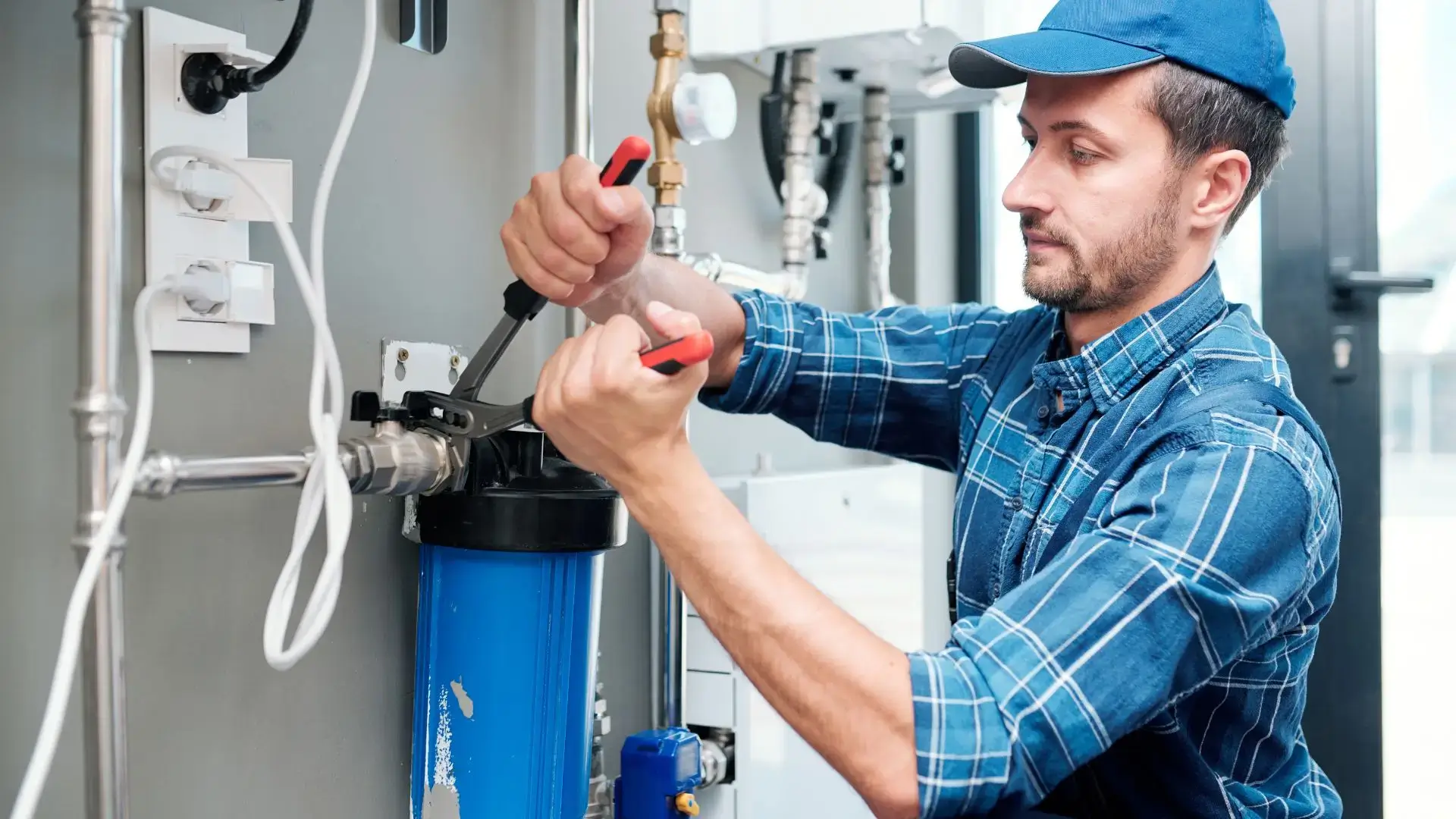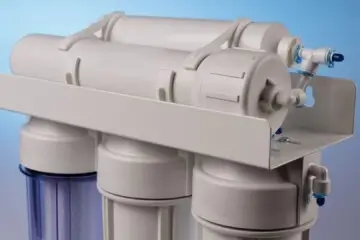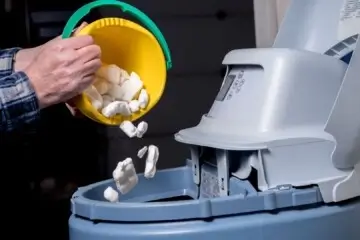Water softeners play a crucial role in promoting environmental sustainability by reducing plastic waste, conserving energy, and encouraging eco-friendly practices. These systems effectively treat hard water, leading to a decrease in water waste and a reduction in overall energy and water consumption. By operating efficiently and minimizing wastewater production, water softeners help in lowering the release of harmful chemicals into the environment. Additionally, they optimize the performance of appliances, conserve energy, and improve water quality, contributing to a more eco-friendly household. Beyond their environmental benefits, water softeners offer numerous advantages that positively impact your home and lifestyle.
Contact CAN Plumbing and Drainage for all your Water Softener Needs
For expert solutions to your water softener needs, reach out to CAN Plumbing and Drainage in Mississauga. Installing a water softener can have significant environmental benefits. By using a water softener, you can reduce the plastic waste generated from bottled water consumption. Soft water requires less energy to heat, leading to lower energy consumption and reduced greenhouse gas emissions. Water softeners also help extend the lifespan of appliances by preventing scale buildup caused by hard water. Investing in a water softener not only benefits your appliances but also contributes to a more sustainable environment. Contact CAN Plumbing and Drainage in Mississauga today for more information on how a water softener can benefit you and the environment.

CAN Plumbing and Drainage Services Related to Water Softeners
At CAN Plumbing and Drainage in Mississauga, we specialize in a variety of services concerning water softeners. Our licensed plumbers in Mississauga is well-versed in water softener installations, replacements, and repairs. You can rely on us to ensure that your water softener system is functioning optimally, delivering the highest quality of water for your needs.
Water Softener Installations
Our plumbing and drainage services include the essential installation of water softeners to improve water quality and prevent mineral buildup in residential and commercial properties. During water softener installations, a brine solution containing sodium chloride is used in the regeneration process to recharge the resin tank. The resin tank plays a crucial role in exchanging hardness ions for sodium ions, effectively softening the water. Our skilled technicians ensure that the installation is customized to the specific hardness level of the water supply, maximizing the efficiency of the water softening system. Proper installation also involves seamlessly integrating the water softener with existing plumbing fixtures to distribute softened water throughout the property, benefiting both the plumbing system and the environment.

Water Softener Replacements
Timely replacement of the resin tank and regeneration components is crucial for the efficient maintenance of water softening systems to ensure peak performance and water quality. Water softener replacements are essential to uphold the benefits of soft water in an environmentally-friendly manner. By promptly replacing worn-out parts, you can maintain the efficiency of your water system and enjoy softened water for longer periods. Periodic replacements of the resin tank and regeneration components are integral for traditional salt-based water softeners to function optimally and provide the desired water quality. These replacements contribute to the longevity and effectiveness of the softening process, promoting a more sustainable and eco-conscious use of water resources. Prioritizing water softener replacements is key to sustaining the advantages of water softening systems.
Water Softener Repairs
Water softening systems must function efficiently to maintain water quality, and timely repairs and maintenance by CAN Plumbing and Drainage Services in Mississauga are crucial. When dealing with water softener repairs, it is important to address issues such as scale build-up caused by hard minerals in the water. Repairs may involve fixing problems with the brine tank, ion exchange resin, or components affected by limescale accumulation. Promptly addressing these issues helps the water softener remain effective, prevent damage, and prolong its lifespan. Regular maintenance and repairs not only ensure optimal system operation but also help reduce overall environmental impact by minimizing water wastage and energy consumption.

Promotes Water Conservation
Promoting responsible water usage, water softeners play an essential role in fostering water conservation efforts. By effectively treating hard water, water softeners help reduce water waste caused by the inefficient performance of appliances like dishwashers and washing machines. This process not only contributes to water conservation but also promotes environmentally friendly practices. Contrary to misconceptions that water softeners are bad for the environment, modern systems are designed to operate efficiently, using less energy and water. The benefits of water softeners extend beyond improving water quality to actively conserving water resources. Embracing water softeners as part of a sustainable lifestyle is a step towards reducing water waste and preserving our planet’s most precious resource.
Extends Appliance Lifespan
Improving water quality through the treatment of hard water with water softeners can significantly extend the lifespan of household appliances. Water softeners function by eliminating minerals that contribute to scale buildup in appliances like washing machines, dishwashers, and water heaters. The presence of these minerals in hard water can lead to gradual accumulation, resulting in reduced efficiency and potential damage to the appliance. By utilizing a water softener, we can prevent this scale buildup, ensuring that our appliances operate optimally for longer durations. This not only prolongs the lifespan of the appliances but also enhances energy efficiency, as scale-free appliances can perform efficiently and reduce energy consumption. Ultimately, investing in a water softener can benefit both our finances and the environment by minimizing the need for premature appliance replacements.
Supports Sustainable Practices
Supporting sustainable practices, water softeners play a crucial role in environmental conservation by reducing water and energy consumption. Hard water can have a negative impact on the environment, affecting aquatic life and increasing energy usage. By using eco-friendly technology, water softeners help conserve water by efficiently removing minerals that cause scale buildup in pipes and appliances. This not only enhances energy efficiency by reducing the need for excessive heating due to scale accumulation but also minimizes the amount of wastewater generated during cleaning processes. The implementation of water softeners is a proactive step towards promoting sustainability and preserving natural resources for future generations.
Energy Savings
Water softeners play a crucial role in energy savings by efficiently removing minerals that cause scale buildup in pipes and appliances. By incorporating a water softener, households can decrease energy consumption as appliances like water heaters and dishwashers operate more effectively without the hindrance of scale buildup. This leads to a reduction in the carbon footprint associated with the energy used by these appliances. The water treatment industry emphasizes the environmental benefits of water softeners, highlighting their energy-saving capabilities. Overall, integrating a water softener into your household can result in significant energy savings, promoting both environmental sustainability and the efficient operation of household appliances.

Reduced Chemical Usage
Moreover, water softeners enable households to significantly reduce their reliance on chemicals for maintaining clean and efficient plumbing systems. By treating hard water effectively, water softeners prevent mineral buildup in pipes and appliances, thereby reducing the need for harsh chemicals such as limescale removers and detergents. This decrease in chemical usage not only benefits the environment by minimizing the release of harmful substances into waterways but also contributes to improved water quality. Additionally, with fewer chemicals being utilized in homes, there is a reduced risk of exposure to potentially hazardous substances for both residents and wildlife. Overall, the adoption of water softeners leads to notable environmental advantages through the decreased dependence on chemicals to uphold the functionality and longevity of plumbing systems and appliances.
Frequently Asked Questions About Water Softeners Near Me
Are There Any Potential Drawbacks or Negative Impacts of Using a Water Softener?
Using a water softener may lead to increased sodium levels in the water and the discharge of brine into the environment. These potential drawbacks should be carefully considered before deciding to install a water softener.
How Often Should a Water Softener Be Serviced or Maintained?
We recommend scheduling annual maintenance for your water softener to ensure optimal performance. This regular service helps prevent issues and prolongs the system’s lifespan. By conducting routine inspections, any potential problems can be detected early, ultimately saving you money in the long term.
Can a Water Softener Be Harmful to the Environment in Any Way?
Yes, a water softener can have a negative impact on the environment if not properly maintained or if excessive salt is used. It is important to follow eco-friendly practices such as regular maintenance, using salt alternatives that are gentle on the environment, and ensuring proper disposal of wastewater to minimize any harm to the environment.
Are There Any Specific Types of Appliances That Benefit More From Using a Water Softener?
Appliances such as dishwashers and washing machines benefit significantly from water softeners. The reduction of mineral buildup helps to prolong their lifespan and improve efficiency. Consistent use of soft water ensures optimal performance and durability for these appliances.
Are There Any Special Considerations to Keep in Mind When Installing a Water Softener in a Home With a Well Water System?
When setting up a water softener in a residence with a well water system, it’s important to consider the water hardness level, flow rate, and the potential for iron buildup. Regular maintenance and testing are essential to ensure optimal performance and durability.
Please rate our website
Let us improve this post!
Tell us how we can improve this post?


